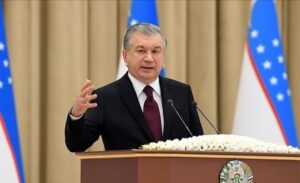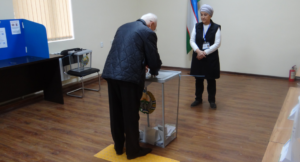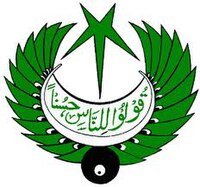The Chief Election Commission of Uzbekistan successfully held parliamentary elections in the country which should be appreciated. It was fair, free, transparent and up to the high international standards which has further enhanced national drive of massive politicization and democratization in the country consolidating further provision of basic necessities of life and protection of human rights.
The total votes casted were 15,027,529. There were 850 international observers in the elections observing freely indicating no such laps as reported by the OSCE in its initial report of October 28. There were 57 polling stations in 40 countries casted 140388. 11028 local polling stations started voting from 8 am to 8 pm providing ample time for voters to vote for their political parties and favored candidates.
The turnout of more than 74.72 percent strongly rejected the Western media propaganda about passive voting. The successful completion of mixed elections based on majoritarian and proportional representation vividly reflected political maturity, diversity, social & ethnic diversity and belief in economic policies of the incumbent president Shavkat Mirziyoyev.
All five registered political parties nominated candidates. The CEC registered a total of 875 candidates, with 375 competing in 75 single-mandate constituencies and 500 candidates in a single nationwide constituency.
According to the Uzbek Central Election Commission, by securing 64 parliamentary seats the Liberal Democratic Party of Uzbekistan has secured the majority of seats in the elections to the Legislative Chamber of the Oliy Majlis, the lower house of the parliament.
Moreover, the National Revival Democratic Party secured 29, The Social Democratic Party Adolat 21, the People’s Democratic Party won 20 seats, and the Ecological Party nabbed 16 seats.
Additional seats were allocated through single-mandate districts, with UzLiDeP receiving 38, the “National Revival” Party 15, the Ecological Party 6, the People’s Democratic Party 7, and the “Justice” Social Democratic Party 9 seats.
Unfortunately, the Organization for Security and Co-operation in Europe (OSCE) in its preliminary report once tried to twist the facts by giving another biased funding, spoiling the electoral progress of the Republic of Uzbekistan. It was full of contradictions showing inbuilt deficiencies, indicating structural flaws and showing lack of basic knowledge about Uzbekistan’s political culture, social customs, ethnic multiculturalism and last but not least common people’s traits.
The OSCE high claims about no genuine choice for the voters is untrue because there were five different political parties participating in the elections. It raised concerns that the political environment remained constrained along with hurdles in political party registration, the right to stand, campaign finance transparency, citizen observation, and the publication of polling station results.
The Uzbek parliamentary elections were held on mixed electoral process but no private or individual candidate was allowed which should be taken as restricted political environment or attitude. For centuries the Uzbek culture does not promote elements of individualism, isolation, self-glorification and gratification but has strong and unshakable belief in community development, societal integration, political consensus and unity of civility negating all scope, utility and importance of private candidates in the elections. Moreover, most of the democracies of Asia, Africa and European Union are experiencing the political uncertainties produced by the private candidates acting like a political stringer, ready for sale and changing of political affiliation.
There is no truth about the OSCE observation regarding the denial or limited so-called fundamental freedoms of association, peaceful assembly and expression both by legislation and in practice. There was a political electioneering euphoria encouraging the common people to participate in various political and electoral activities throughout the country.
Despite the OSCE concerns about the under representation of the women in politics, administration, judiciary, and public life, women were well represented among candidates and in election process. There women participation was further enhanced from 30 percent to 40 percent strongly indicating a real women empowerment in the country mitigating the OSCE observations.
The OSCE termed media coverage as limited because of restrictions on free expression, resulting in minimal access for voters to diverse viewpoints. On the contrary, every political party had the equal time, on electronic channels and radio transmission along with free access to social media.
Moreover, the OSCE stated that election day was calm and orderly but negatively affected by numerous cases of identified violations, malfeasance, and procedural and technical problems. Important safeguards were repeatedly disregarded during voting, counting, and tabulation, challenging the integrity of the process and undermining transparency.
On the other hand, there was not a single incident of ballot snatching, proxy voting, criminal activity and last but not least any fuss on the day of elections. However, since parliamentary elections were based on the mixed electoral system first time in the national history of Uzbekistan caused any structural irregularity which should not be equated with mismanagement, electoral malpractice or political dishonesty on part of the Chief Election Commission and its regional offices.
In summary, the Republic of Uzbekistan has successfully held the parliamentary elections on October 27, having a mixed electoral system which will hopefully further strengthen the scope, role, utility and importance of the political parties, parliament, common people, supporting political opposition, consolidating the elements of political diversity, judicial transparency, administrative impartiality and above all accountability and start of new chapter in the national history of the country.
It is suggested that process and implementation of the legislation should be made easy and smooth removing burdensome requirements for party registration and broad legal grounds for denying registration and suspension of party activities.
The policy makers of Uzbekistan and its main stakeholders should also start considering to allow gradual permission for independent candidates to contest the elections. In this regard the Japanese model of business union and technocrats may be a good option for the beginning.
There is an urgent need to pursue a real empowerment of women in the national politics by appointing more women in the ministries, head of the government organizations, development agencies, judicial slots and last but not least, regional governors (hokims) in the country.
Last but not least, the OSCE labeled the electoral process and campaign remained low-key and contestants did not publicly criticize or genuinely challenge the policies of the ruling party or each other. The author would like to clarify that western unbridled public cretinism does not have scope, space and voice in Uzbekistan because it always maintains political decency and does not indulge in any character assassination campaign, ethnic flop-play, misuse of religion, minority, gender, racial or color discriminations during the electoral process showing the real colors and essence of the democracy of Uzbekistan giving it real leverage over others.
The OSCE termed that the regulatory framework for campaign finance was dubious and did not facilitate transparency, not providing for effective oversight and public scrutiny. It is totally incorrect and untrue because the funding for campaign purposes is allocated exclusively from the state budget and only to registered political parties with an approved list of candidates from the CEC.
There is an urgent need to closely coordinate with the OSCE for creating better understanding about Uzbekistan that political bashing, maneuvering, structural dishonesty, pre & post political engineering, misuse of money and electoral proxies are not in the DNA of its politics, society, administration, judiciary, and public. Thus parliamentary election of October 27 was completely free, fair and transparent.








